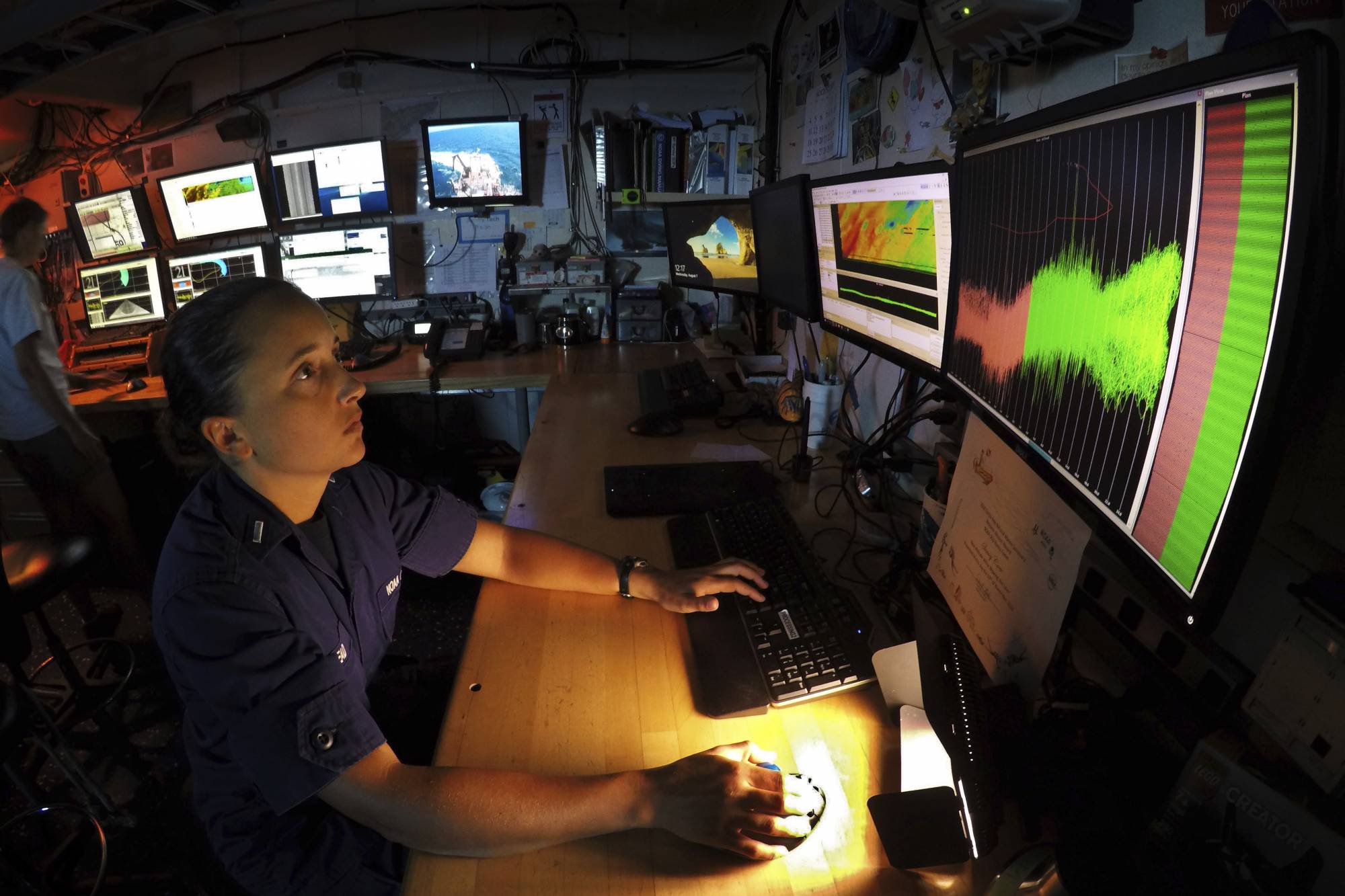Hubbard Radio Washington DC, LLC. All rights reserved. This website is not intended for users located within the European Economic Area.
A new and troubled Commerce Department financial system has fresh glitches
A new finance system for the Commerce Department has had a rough rollout. Now it's delayed a program initiative from the Biden administration.
A new finance system for the Commerce Department has had a rough rollout. Now it’s delayed a program initiative from the Biden administration. We spoke with Bloomberg Government’s Jack Fitzpatrick a few weeks about problems with the Commerce’s Business Applications Solution. For more on the latest glitch, Federal News Network’s Eric White spoke with Fitzpatrick on the Federal Drive with Tom Temin.
Interview Transcript:
Jack Fitzpatrick So the Commerce Department wants to roll this out very broadly. But they started with NOAA, the National Oceanic and Atmospheric Administration, and they had a ton of problems there. There were employees who waited months to get travel reimbursements. There were missed bill payments. Invoices didn’t go through. They had power shut off because they didn’t pay their electric bills in some cases. And eventually, after the chaos at NOAA, officials at the Commerce Department decided not to roll it out. At the National Institute for Standards and Technology, because Nest is responsible for dispersing the money, the research and development money, and the grants that make up the chips and science bill, that’s so important for semiconductor production in the U.S.. So that’s a high priority for the Biden administration. And they did not want to roll out a messy financial system that wasn’t working well at this agency that has a ton of grant money coming through it over the next few years.
Eric White Wow. Yeah, that is pretty insane. I mean, this is a major policy push by the Biden administration and was the only reason for not rolling this out right now because of this. Did it all lie solely because of the problems with the business application solution?
Jack Fitzpatrick They announced this at a town hall that appeared to be directed at employees, but it was posted basically on their public website, and they told employees that they were going to delay the rollout at NIST, partly because of the concern over chips grant money, but because there were a lot of lessons learned and problems they were still working through with this new system at NOAA, and they wanted to take the time to implement the lessons learned there. So what you are seeing at NOAA, in terms of the financial problems is the cause for this new financial system being delayed at NIST, and NIST will still use their old financial system, doesn’t have the bells and whistles that they wanted to add, the ability to track money, as well. But that wasn’t working very well at NOAA. So, they’re not going to try to reinvent the wheel at a very inconvenient time at another agency.
Eric White Got it. So are they going to pause the grant awarding process in general for this or are they just going to continue to use the old system and it may, you know, delay things a little bit since, as you mentioned, it doesn’t have all those bells and whistles.
Jack Fitzpatrick They will continue to disperse the grant money. That is a very high priority for the Biden administration. They’re just putting off the implementation of the new financial system, which was really more of a long-term goal, to have a new system that does a better job of, in a centralized way, allowing them to track money going in and out of the agency. So, it should not delay, the grant money for chips from going out. That’s the whole purpose of delaying the new financial system. I’m sure there are employees who would have liked some of the improvements that they’ve been talking about with the new financial system, with all that money going through nest, but they decided it’s a safer bet to just stick with the current financial system, do things the way they’ve been doing for a number of years at nest to avoid any major pitfalls while they’re trying to get all that money out the door.
Eric White Yeah, saying high priority may be an understatement because as anybody who watches technology news, the race for the growth in the semiconductor manufacturing business is on with China and there’s really no time to waste.
Jack Fitzpatrick Yes, definitely a high priority. I think you could call it a policy and political priority for the Biden administration. It’s something that was a major legislative priority to get the chips and science bill enacted into law. It takes logistical work to make that happen and get the money out the door. But it also speaks to the president’s ability to legislate, to carry forth the policies that he campaigned on. So, in an election year, having a major slowdown, you know, they were supposed to implement this system in October of this year at nest. So complicating factors to their ability to put out grant money would be very, very bad timing in terms of their ability to carry out their policies and potentially politically in a campaign year.
Eric White We’re talking with Jack Fitzpatrick, a reporter with Bloomberg Government. And whether you like it or not, Jack, the problems that NOAA is your beat now. And they, they, they let us know also within that town hall meeting or other documents, sent internally to no employees, some of the other issues that NOAA officials are dealing with. What else was included in that top ten list?
Jack Fitzpatrick Yeah, it’s a pretty widespread set of issues. It is being fixed very, very slowly, according to employees looking at internal documents. They not only had trouble getting bills paid, getting money out the door, but there were some cases, according to these internal documents, that affected grant money through the Economic Development Administration and the National Science Foundation because they work with NOAA, in some cases on grant funding. So, there are at least a couple other agencies that have been pulled into these issues because of NOAA’s financial mishaps under this new system. I’ve also been told by a NOAA financial analyst that at this point, they know that money is going out the door. Finally, they have more capability to pay their bills, but they don’t have the ability to track specifically which bills are being paid. All of these things are supposed to be linked up so that they don’t just see that X number of dollars went out to this contractor, they can tie it to, oh, it was for this invoice or that invoice. They do not have that ability. This contractor sorry, this, NOAA financial analyst likened it to flying blind while trying to manage NOAA’s finances. So, it’s a wider a wider array of financial challenges at NOAA then was previously known or that they have publicly acknowledged.
Eric White Yeah. When we talked a few weeks back, you had mentioned that they were looking for solutions to this problem. Does a wider array of affected agencies mean that we are going to have to extend the timeline before NOAA employees and National Weather Service employees and all those agencies affected are going to start to see any sort of improvements.
Jack Fitzpatrick Well, on an individual basis, some people have seen an improvement, for example, when they didn’t pay their employees back for travel reimbursements that led to a grievance filed by the union that represents National Weather Service employees. And I’ve been told by the union president that they have all been paid back, but it’s a matter of a number of payments being made manually and not actually a sign that this new system is functioning properly. So, the agency is trying to keep up with the debts they owe, the backlog of payments that they’re supposed to make. And the system does not appear to be working very well, though in high priority cases they’re able to largely manually get the checks out the door. So, there are some, cases of good news for employees who were paid back after five months or so of waiting on reimbursements. But there’s still a lot of issues with getting this financial system to work properly and not create more issues and add to the backlog.
Eric White Yeah, I’m just curious, and you may not have been able to find the answer to this yet. Did officials give you any sort of timeline of you know, what’s going to come first or what’s going to be the next their first step in trying to rectify all this?
Jack Fitzpatrick The officials who are responsible for high level communications on this have not answered those questions. When I talk to employees who are affected. They also haven’t gotten a ton of answers about when exactly this is going to be fixed. There was an inspector general report out at the end of last year. Actually, it was an inspector general report, out earlier this year that expected a pretty prompt, process of taking care of this. We’re already well into fiscal year 2024. There’s not a clear timeline on when things are going to be cleaned up at NOAA, which is part of the reason why they are delaying this at next. Now, they have said they are sticking to the timeline for October of 2025, rolling this out at the Census Bureau, and it’ll be interesting to see if they actually stick to that timeline, because as you get later in a decade, the Census Bureau spends more and more money as they ramp up for the decadal survey. So, there are some other issues to answer. As for what exactly the timeline is they’re delaying it for? They’ve got other plans, including at the Census Bureau. But there’s there haven’t been a lot of updates in the near term about when things will be totally cleaned up by NOAA.
Copyright © 2024 Federal News Network. All rights reserved. This website is not intended for users located within the European Economic Area.
Eric White
Eric White is news anchor and Federal Drive producer at Federal News Network.
Follow @FEDERALNEWSCAST





